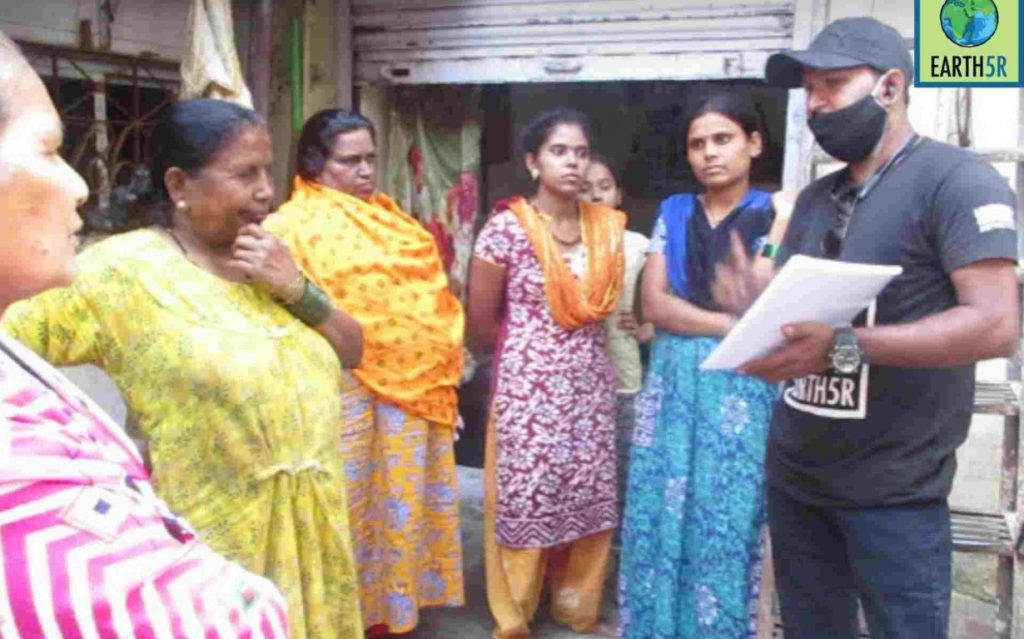
Mumbai: A Community Approach To Sustainable Waste Management And Circular Economy
Communities play a vital role in contributing to sustainable waste management and reduction at individual level.
By staying informed and acquainted with the current basic sustainable practices, the local communities can help support the adoption of solutions that will dramatically reduce waste pollution over time.
SDG 11 Target: By 2030, reduce the adverse per capita environmental impact of cities, including by paying special attention to air quality and municipal and other waste management.
Kurla has one of the largest slum areas in Mumbai, lying along the east bank of the Mithi River, India.
Like any other typical slum, it is densely packed with around 1,00,000 families living in closely-knitted settlements with limited access to sanitation, safe waste disposal and management.
Studies show that the world is only 8.6 per cent circular.
Around 5000 small to medium-scale businesses are operating without a formal waste management system, thereby creating nuisance for the slum dwellers and the local ecosystem.
Land and water degradation due to unmindful and indiscriminate throwing of garbage in the vicinity or directly into the Mithi river has affected the overall river system and also created poor living and health conditions for the residents.
Cleaning the river is just one aspect of the plan. The bigger challenge is to instill a sense of belongingness among the residents nearby.
Although the waste management system in Mumbai is flawed, there is a small community of eco-warriors who are trying to reduce waste and transform it into usable products, thereby driving towards a sustainable and circular economy and community.
Therefore, this dedicated team of Earth5R volunteers aim to correct the root cause of the problem and not just merely offer a band-aid solution.
Children that grow up in areas with no waste management suffer from disease, stunting, and poorer economic opportunity.
In their pursuit to stop this plastic and other waste from entering the river, Earth5R volunteers are bringing a behavioural change among the members of the Kurla region through its Solid Waste Management & Community Livelihood Trainings.
These dual training programmes are a step towards a safe, clean, resilient living and employment opportunities from the waste generated.
During their onsite visits, the volunteers indulge with the slum residents educating them about various waste management techniques at household level.
An Earth5R volunteer interacting with the local residents in an interactive session
The Earth5R volunteers engage with the people talking about waste segregation as dry waste, wet waste and hazardous waste, waste characteristics, the 3R’s of waste management, harmful effects of improper and open waste dumping on nature and health, and how to turn waste into some useful and economical resource.
For instance, creating gift bags from old paper and compost from the organic waste generated from the household kitchen.
They make them realize their role and responsibility towards community waste management.
Also, a part of the recyclable waste generated, is sold by the households themselves and part of it is picked up by the rag-pickers to earn their own living. This provides them with livelihood opportunities and the waste also gets reduced.
Hence, the overall aim of such initiative is to sensitize and educate the women, children, menfolk and senior citizens regarding their carbon footprint and imparting various skills such as upcycling from old clothes, paper, plastic bottles etc.
This also helps in empowering them economically and to work at their own discretion.
ABOUT EARTH5R
Earth5R is an environmental organization from India with its head office at Mumbai. It works with the NGO sector, Companies and helps them conduct environmental Corporate Social Responsibility (CSR) programs across India.
Earth5R specializes in circular economy based projects. Earth5R also offers short term and long term environmental courses and fellowships.
–Reported by Trisha Garg




